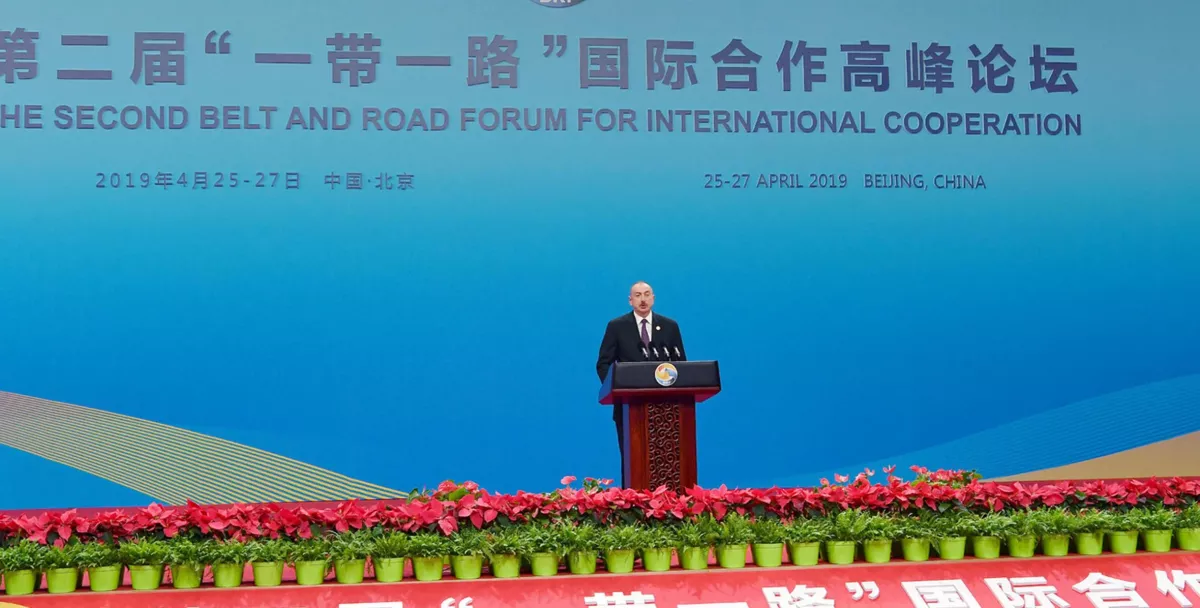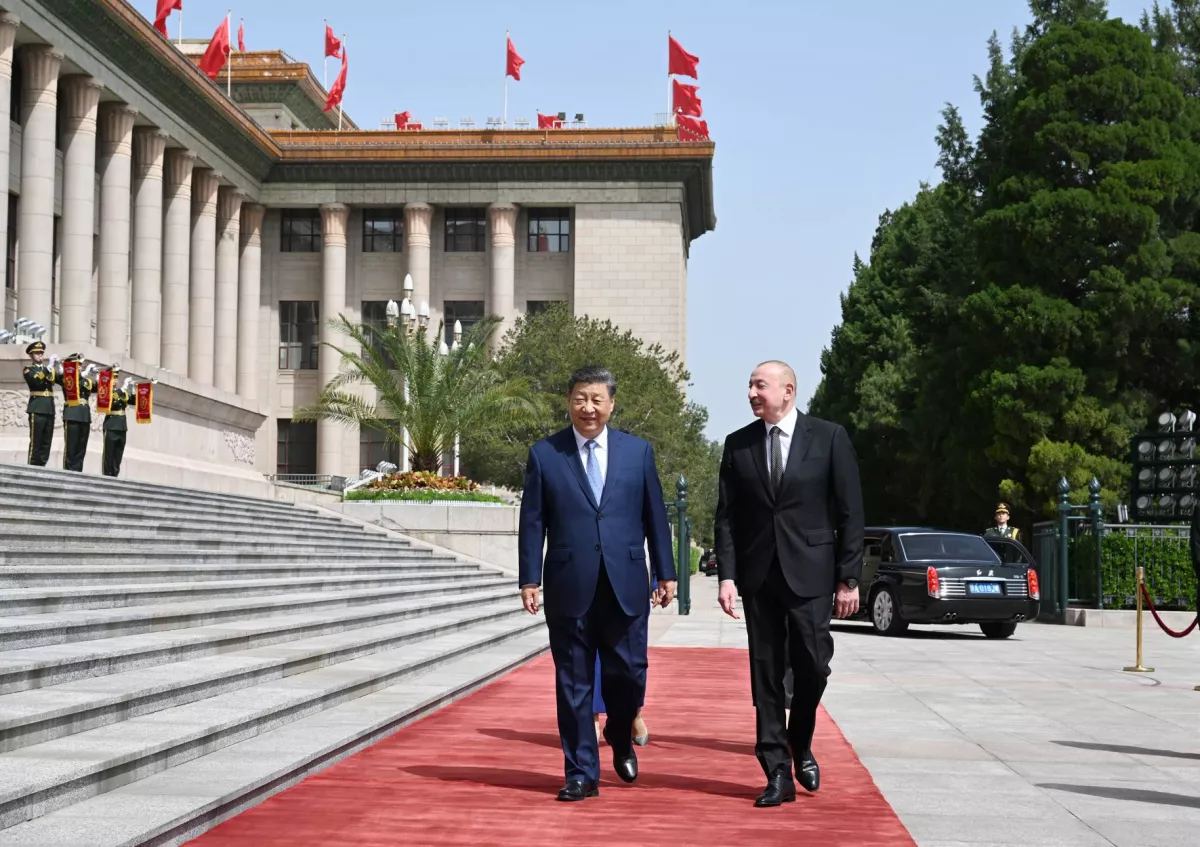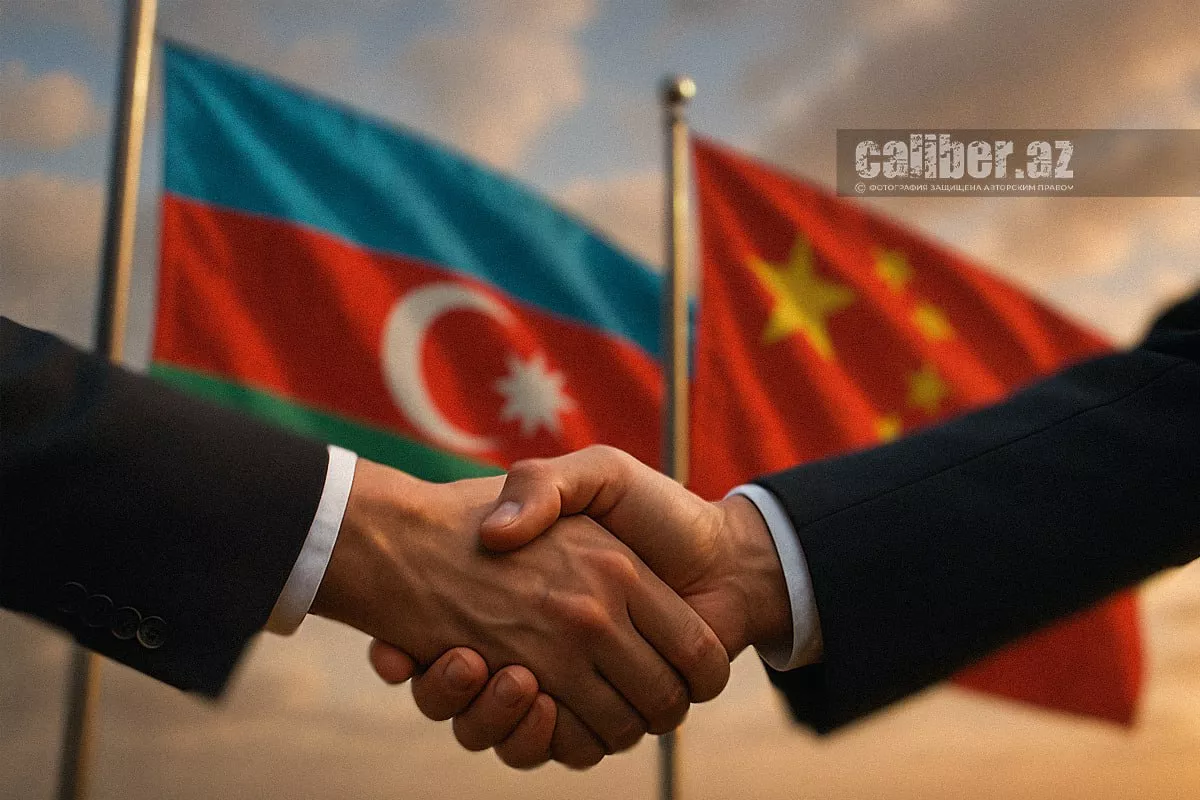China’s strategy in Eurasia: Beijing bets on Baku Article by CACI analyst
An article by Syed Fazl-e-Haider on Azerbaijan-China relations has been published in the American publication The Central Asia-Caucasus Analyst. Caliber.Az presents excerpts from this material for its readers.
Historically, relations between China and Azerbaijan trace back to the ancient Silk Road, along which trade and cultural exchanges took place over 2,500 years ago. In December 1991, China recognized Azerbaijan’s independence, and diplomatic relations were formally established with the Caucasian state in April 1992. China inaugurated its embassy in Baku in 1992, while Azerbaijan opened its embassy in Beijing in 1993. Azerbaijan was among the first states to accede to China’s multi-trillion-dollar Belt and Road Initiative (BRI), launched in 2013. Designed to enhance global connectivity through investments in infrastructure, energy, and transportation, the BRI extends across more than 160 countries. In 2015, China and Azerbaijan concluded a memorandum of understanding on the joint development of the Silk Road Economic Belt.
In 2019, President Ilham Aliyev traveled to Beijing to attend the “Belt and Road” International Forum, during which the two states signed ten agreements to strengthen cooperation in industry, investment, trade, and other economic sectors. The BRI has functioned as a catalyst for the rapid expansion of China–Azerbaijan relations, which have evolved over the years from commercial, economic, transit, and logistics collaboration to cooperation in science, technology, and cultural exchange.

In 2024, the two nations, during a Shanghai Cooperation Organization (SCO) summit in Astana, reached another milestone in bilateral relations by adopting the “Joint Declaration of the Republic of Azerbaijan and the People’s Republic of China on the Establishment of a Strategic Partnership.”
In April 2025, China–Azerbaijan relations were elevated to a comprehensive strategic partnership, inaugurating a new chapter in bilateral ties. During talks with the visiting President Aliyev on April 23 in Beijing, President Xi emphasized that the two states should “continuously enhance political mutual trust, deepen practical cooperation, and strengthen international collaboration to open a new chapter of all-round cooperation.”

Geographically, the South Caucasus is of interest to China as it offers a potential land route linking China with Europe. For this reason, Beijing last year formally joined the Middle Corridor, a trade route connecting Europe and China that bypasses Russia and serves as an alternative to the Northern Corridor through Russia and to traditional maritime routes. Participation in the Middle Corridor is part of China’s broader strategy to diversify its trade routes.
For China, the present moment is opportune for expanding its presence in Central Asia and the South Caucasus, where Russia has been rapidly losing influence due to its war in Ukraine since February 2022. The ongoing transformation of the Eurasian geopolitical landscape has brought renewed attention to Azerbaijan’s role as a transit state between Europe and Asia. Within the rapidly evolving regional dynamics shaped by Russia’s war against Ukraine, Azerbaijan has gained centrality in China’s Eurasian economic strategy.
Situated at the intersection of China’s East–West and North–South transportation routes, Azerbaijan has figured prominently on Beijing’s agenda for advancing its economic and strategic objectives in the region. China regards Azerbaijan as a pivotal partner for extending its influence across Central Asia and the South Caucasus. As a key actor in the South Caucasus for the EU, Russia, and China alike, Azerbaijan plays an important role in the BRI by facilitating strategic connectivity projects. The Baku–Tbilisi–Kars railway (BTKR), for instance, links the Trans-European and Trans-Asian railway systems. This project not only grants the five Central Asian republics and Afghanistan access to the EU but also expedites the movement of Chinese goods into European markets. Likewise, Azerbaijan provides China access to the Baku International Sea Trade Port within the BRI framework. Located on the historic Silk Road, the Port of Baku functions as a major transport and logistics hub connecting Europe and Asia, and constitutes a vital component of the Trans-Caspian International Transport Route, or Middle Corridor.

Azerbaijan’s strategic connectivity initiatives possess the capacity to transform the Caucasian state into a major transport and logistics hub of the region. For this reason, China envisions a pivotal role for Azerbaijan in advancing the prospects of the BRI and ensuring the success of its Eurasian economic strategy.
At present, transport and logistics constitute the principal domains of China–Azerbaijan cooperation, though this partnership may expand to include military collaboration. Azerbaijan has already procured Pakistan’s JF-17 Thunder Block-III fighter aircraft, a joint venture between the Pakistan Aeronautical Complex Kamra and China’s Chengdu Aircraft Industry Corporation. Beijing could further augment Azerbaijan’s military capabilities as it consolidates its strategic presence in the South Caucasus in the capacity of Baku’s strategic partner.
By virtue of its position at the crossroads of Europe and Asia, Azerbaijan possesses significant potential to serve as a viable transit hub linking China, Central Asia, and Europe, particularly at a time when Beijing, engaged in a trade war with Washington, is actively seeking alternative routes for its exports.
At present, China is not in a position to shape the geopolitics of the South Caucasus given the presence of other key actors such as the EU, Russia, Turkey, Iran, and the U.S. Beijing has, however, placed its bet on Azerbaijan, which it regards as a pivotal node in strategic connectivity initiatives such as the Middle Corridor. China further views a strengthened strategic partnership with Azerbaijan as essential to consolidating its position in the South Caucasus.
Editor’s note: Syed Fazl-e-Haider is a Karachi-based analyst at the Wikistrat. He is a regular contributor to Eurasia Daily Monitor of Jamestown Foundation








